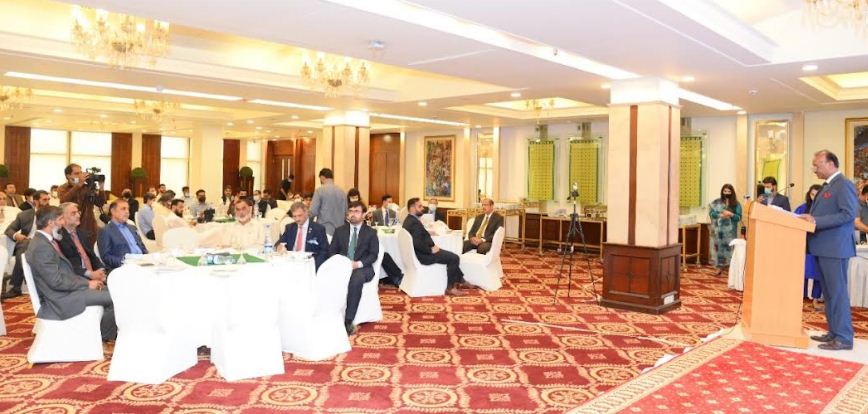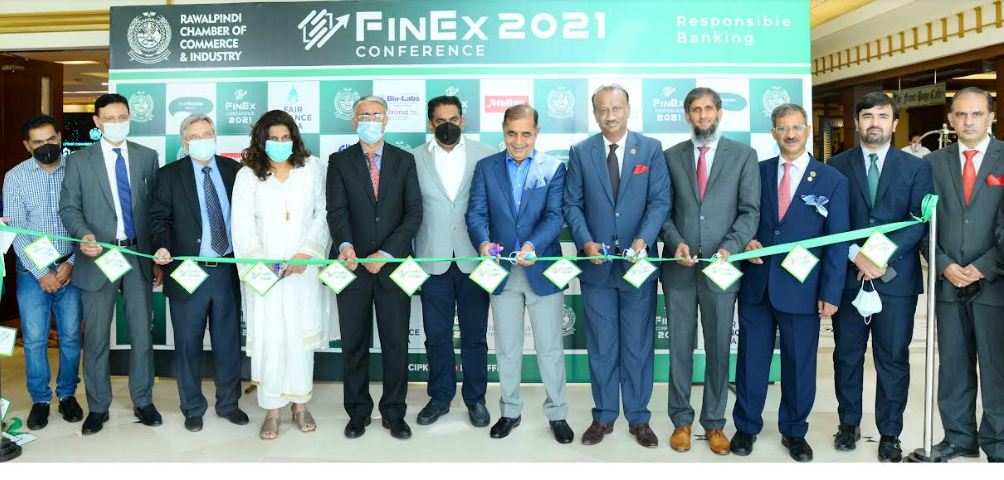Rawalpindi, AUG 11 /DNA/ – The Rawalpindi Chamber of Commerce and Industry (RCCI) in collaboration with Fair Finance Pakistan organized a roundtable moot titled” FinEx” on responsible banking in the country. The major aim of the conference was to strengthen multi-stakeholders’ dialogue and action on sustainable finance in Pakistan.
The FinEx Conference was well attended by RCCI members, deputy chief from the State Bank of Pakistan, senior representatives from leading commercial banks including HBL, UBL, National Bank, Askari Bank, Meezan Bank, Faysal Bank, Bank of Punjab, First Women Bank, Apna officials from the Pakistan Banks’ Association and civil society organizations.

A joint declaration was presented at the conference which puts forward recommendations to the Prime Minister of Pakistan, Finance Minister, Governor, State Bank of Pakistan and Chairperson, Securities & Exchange Commission of Pakistan to play a more pro-active role in ensuring inclusive financing, especially for women.
RCCI President Mohammad Nasir Mirza in his address made a strong commitment that the joint communiqué presents a holistic picture for the regulators and is a collective voice from the business community that this is the time for reform to nurture the business and harness the environment by the regulator.
During the roundtable, Fair Finance Pakistan presented the findings of “Strengthening Sustainable Finance in Pakistan: A scoping review towards institutionalizing Fair Finance Pakistan,” authored by Dr. Abid Aman Burki from Lahore University of Management Sciences.
The scoping review gave an analysis on financial inclusion in Pakistan which is at 21% compared to the State Bank’s ambitious goal of 50% by 2020.
In her welcome remarks, Bernadette Victorio, Program Lead of Fair Finance Asia, said, “Pakistan is an important country for energy transition in Asia. The Fair Finance Asia coalition calls on Asian and international financial institutions operating in the region to urgently stop coal financing and divert resources towards renewable energy in order to align with the Paris Agreement.”
The meeting featured a panel discussion with banking sector experts on consumer financing and responsible banking. Banking sector representatives shared their current policies of integrating environmental, social and corporate governance (ESG) guidelines in their operations at the strategic, portfolio and transaction level. Representatives from the State Bank of Pakistan highlighted the importance of integrating Bank’s Green Banking Guidelines to foster a culture of responsibility in the banking sector.
Speaking at the panel, Asim Jaffry, Program Lead, Fair Finance Pakistan said the regulator must shift voluntary reporting towards compliance for listed and non-listed companies.”

















